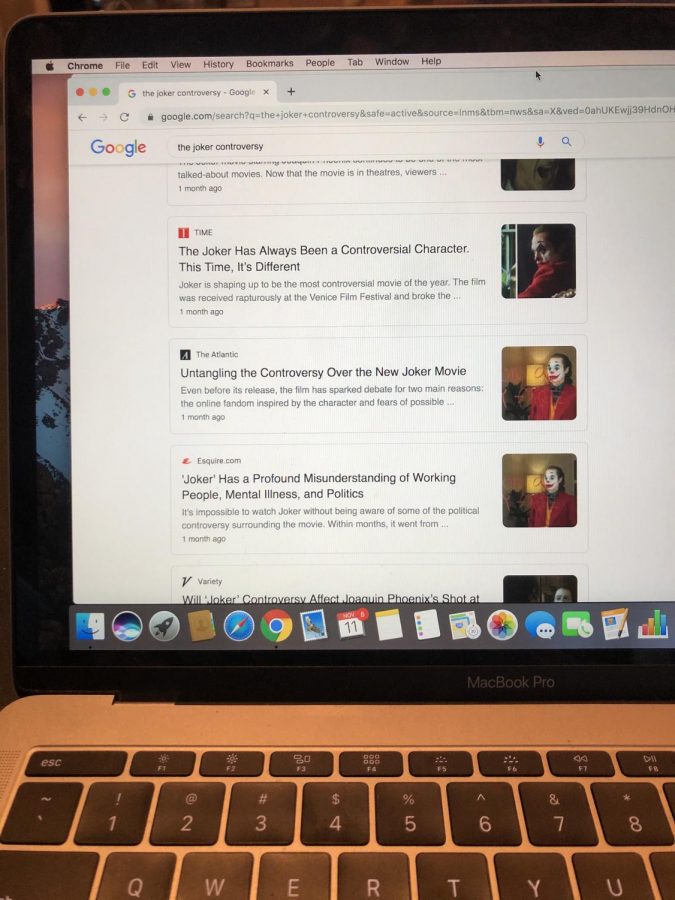Simply put, the film industry has power. Films have long been the cornerstones and determining factors of each generation’s culture, internationally shaping present and future ideas.
Their influences have changed laws, raised awareness, convinced leaders, and inspired copious change. However, when looking at many of Hollywood’s recent works, it seems evident that they are ignorant of the power they wield and are being widely irresponsible when it comes to being good citizens of it.
One of the most prevalent and obvious examples of this irresponsibility is a recent and controversial release, “The Joker.”
“The Joker” received heat starting very early on for glorifying incel culture and violence. “Incel” is a recently-coined term that stands for “involuntarily celibate” and represents a violently dangerous culture of disenfranchised young men lurking in the dark spaces of the internet. The protagonist of the film seemed to check all of the boxes for that label, and his portrayal worried people across the country.
Incel culture is known for its idolization of individuals who carry out mass shootings; as this group started to buzz about the new movie, many disturbing and potentially frightening posts came to light regarding intended violence inspired by the film.
The New York Post reported, “Top officials of the Army’s Criminal Investigation Division said it received ‘credible’ intelligence from law enforcement in Texas about ‘disturbing and very specific chatter’ on the dark Web regarding ‘the targeting of an unknown movie theater during the release.’”
Amidst this “chatter,” the FBI and Department of Homeland Security issued a warning to service members warning them of the potential for mass shootings during the film’s widespread opening, and detailing precautions to be taken in the case of a shooting.
All of these threats beg the question of why Warner Brothers chose to put this production into the lap of a society continually berated by mass shootings. (As of September 1, there had been 283 in the US so far this year.) Hollywood is consistently a strong advocate for gun control, yet after shirking the responsibility that their influence carries, they contributed to an issue that their influence has the potential to help solve.
Junior Michael Musal, who recently saw the film, described some of its gun violence: “[It] starts to promote violence after he…shoots three drunk rich kids…then he goes on national TV and shoots the TV host.”
Unfortunately, this is far from the only example of Hollywood’s ignorance. “13 Reasons Why,” a Netflix original released in 2017, shows the same signs of irresponsibility.
The show came under fire upon its release for allegedly glorifying teen suicide; it centers around the tapes left behind by the protagonist after she takes her own life, and includes a graphic scene of said suicide without trigger warnings.
Unlike “The Joker,” which almost caused dangerous change, “13 Reason Why” actually did.
NPR reported on a study that was conducted following the show’s release, saying, “In the month following the show’s debut in March 2017, there was a 28.9% increase in suicide among Americans ages 10-17. The number of suicides was greater than that seen in any single month over the five-year period researchers examined.”
One thing is for sure: films have more power than most people would be willing to admit. Having audiences that span the country and the globe, the film industry needs to be more careful about what material and messages they send to the public. If not, disaster could result.









